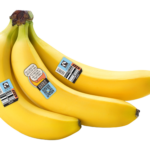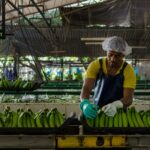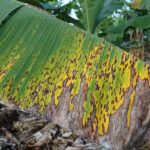Ecuadorian banana industry struggling against drug trafficking

Ecuador is the leading banana exporter in the world, shipping approximately US$3.5 billion worth of bananas in 2022. However, the country has been in a long-term struggle against drug trafficking which has plagued the industry.
Banana shipments to different countries have been confiscated with large amounts of drugs. Recently, Spanish authorities found nearly 9.5 tons of cocaine in banana cases shipped from Ecuador, the largest drug bust in the country’s history.
Last year, Ecuadorian police reported a record 47.5 tons of cocaine found in banana shipments.
The situation has forced the Ecuadorian government to intervene and impose more regulations and control over banana exports.
A press release from the Ministry of Agriculture and the National Customs Service stated that preferential export codes - permits required to operate as exporters - were deactivated for 40,000 acres of bananas, which turned out to be fictitious. Last year, codes for 50,000 acres, which were found to be false, were canceled.
Drug traffickers take advantage of this profitable business to create fake export profiles or companies that pose as banana exporters but are used to take the drug from Ecuador to different countries around the world.
The country's lax controls and geographical location, in the middle of Colombia and Peru, the world's main cocaine producers, have been an attraction for organized crime, which is using bananas as a vehicle for cocaine exports, according to AP.
The private sector, one of the most damaged by the situation, has significantly invested to improve banana export security, but a concerted public sector effort is needed to address this growing threat. Significant obstacles remain to eradicating drug trafficking from banana shipments, which threatens the industry and the country's image as an exporter of this iconic fruit.












































